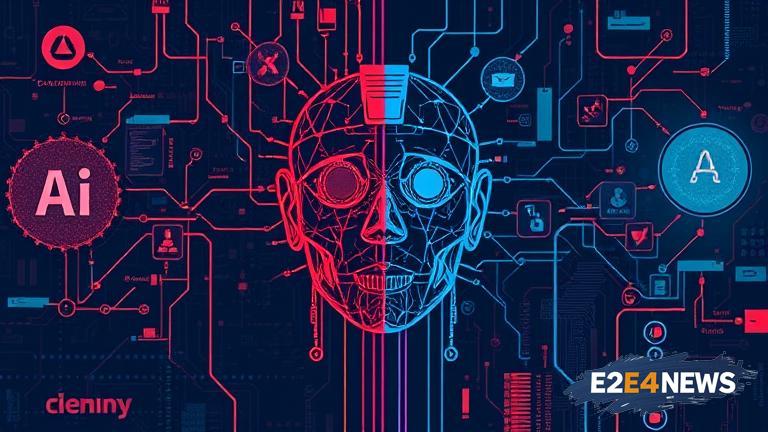The recent wave of tech layoffs has sparked intense debate, with many CEOs pointing to artificial intelligence (AI) as a primary reason for the job cuts. However, a closer examination of the situation reveals that the truth is more complex. While AI has undoubtedly transformed the tech landscape, its role in the current layoffs is not as straightforward as it seems. In reality, the tech industry has been experiencing a slowdown due to various factors, including economic uncertainty, reduced consumer spending, and increased competition. Many companies had over-hired during the pandemic, and the subsequent downturn has forced them to reassess their workforce needs. Furthermore, the shift to remote work has also led to a reevaluation of staffing requirements. AI, while a significant factor in the industry’s evolution, is not the sole culprit behind the layoffs. Instead, it is a combination of factors, including poor management decisions, lack of innovation, and failure to adapt to changing market conditions. The tech industry has always been characterized by rapid change and disruption, and companies that fail to innovate and stay ahead of the curve are more likely to experience layoffs. Moreover, the current layoffs are not unique to the tech industry, as other sectors are also experiencing job cuts due to economic uncertainty. It is essential to note that AI has the potential to create new job opportunities, even as it automates certain tasks. The key is for companies to invest in retraining and upskilling their employees to take advantage of emerging technologies. The Indian government has also launched initiatives to promote AI adoption and job creation in the country. However, the success of these initiatives depends on the ability of companies to adapt and innovate. In conclusion, while AI is a significant factor in the tech industry, it is not the primary reason for the current layoffs. Instead, it is a complex interplay of factors, including economic uncertainty, poor management decisions, and failure to innovate. As the tech industry continues to evolve, it is crucial for companies to prioritize innovation, adaptability, and employee retraining to stay ahead of the curve. The future of work will undoubtedly be shaped by AI, but it is up to companies to ensure that this transformation benefits both businesses and employees. The Indian tech industry, in particular, has the potential to thrive in this new landscape, given its strong foundation in IT and software development. Nevertheless, companies must be proactive in addressing the challenges posed by AI and other emerging technologies. By doing so, they can unlock new opportunities for growth and job creation, rather than simply relying on layoffs as a means of cost-cutting. Ultimately, the key to success in the tech industry lies in embracing innovation, investing in employee development, and fostering a culture of adaptability and resilience. As the industry continues to navigate the challenges and opportunities presented by AI, one thing is clear: the future of work will be shaped by those who are able to innovate, adapt, and thrive in a rapidly changing landscape. The role of AI in this landscape will be significant, but it is up to companies to ensure that its impact is positive and beneficial for all stakeholders. In the coming years, we can expect to see a significant shift in the way companies approach AI adoption, with a greater emphasis on retraining and upskilling employees. This shift will be driven by the need for companies to stay competitive in a rapidly changing market, as well as the growing recognition of the importance of investing in human capital. As the tech industry continues to evolve, it is likely that we will see new job opportunities emerge, particularly in areas such as AI development, deployment, and maintenance. However, it is also likely that certain jobs will become automated, highlighting the need for companies to invest in retraining and upskilling programs. In conclusion, the relationship between AI and tech layoffs is complex, and there is no single reason for the current job cuts. Instead, it is a combination of factors, including economic uncertainty, poor management decisions, and failure to innovate. As the tech industry continues to navigate the challenges and opportunities presented by AI, it is crucial for companies to prioritize innovation, adaptability, and employee retraining to stay ahead of the curve.





